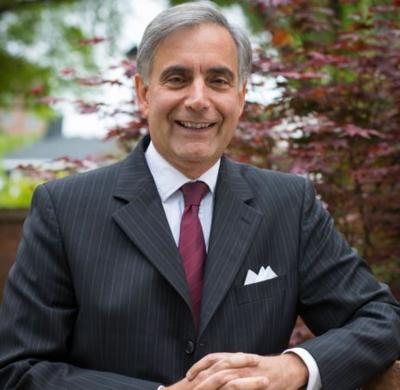Looks like no more politicians will speak at University of South Carolina graduation ceremonies for a while.
The state’s flagship college announced that starting in May, only USC President Harris Pastides will deliver the commencement address and not guest speakers. The school will still hand out honorary degrees to dignitaries, but they won’t address students and their families.
USC spokesman Jeff Stensland said the school made the change because of increasing difficulty in lining three quality speakers in May and a desire to refocus commencement on students and families rather than a big-name speaker. Having Pastides speak at graduation also provides "a nice bookend to freshman convocation, where they hear from the president for the first as freshmen," Stensland told Free Times.
But the state's flagship university has received some criticism about a recent spate of political commencement speakers. USC, like other public colleges in the state, vie for state money and alumni donations that could be hurt by who is chosen to speak before graduates.
Between May 2014 and December 2015, speakers at USC graduations included: Vice President Joe Biden; former Florida Gov. Jeb Bush; South Carolina Gov. Nikki Haley, U.S. Sen. Tim Scott of South Carolina; and former Charleston Mayor Joe Riley. (That’s three Republicans and two Democrats, for those keeping count.)
The school ended that run in May with speeches by a corporate chief executive who headed the school’s $1 billion fundraising campaign, a USC trustee who was past president of the American Bar Association and Boeing’s chief lobbyist.
The head of a free-speech education watchdog said he is not surprised at USC’s new commencement policy after rising protests on college campuses nationwide led some schools to disinvite speakers. At least 10 colleges disinvited commencement speakers this year, twice as many as in 2015, according to the Foundation for Individual Rights in Education.
“It would be sad that [USC] did this because they were afraid to bring in someone who would be the slightest bit controversial,” foundation president Greg Lukianoff told Free Times.
USC denies caving to political pressure in adopting the no-guest commencement speaker policy.
"Politics and political correctness," Stensland says, "really haven't been part of the discussion."
USC fails to land some big-name speakers because the college does not pay fees or honorariums. The school covers speakers’ expenses to travel and stay in Columbia. That scenario can lead USC to lean on politicians or nondescript business leaders and government officials to address graduates.
“There’s an arms race for commencement speakers, because they can draw a lot of attention to a school,” says Tom Harnisch, director of state relations and policy analysis for the American Association for State College and Universities.
Rather than participate in the rush for top-name speakers or risk criticism for a commencement invitation, some colleges, such as Bradley University in Illinois, are choosing to opt out, Harnisch says.
Other colleges without guest commencement speakers include Alabama, Baylor and some Ivy League schools -- Yale, Princeton, Columbia, Brown and Cornell.
Next spring, Pastides will give commencement addresses at the USC ceremonies held at Colonial Life Arena on Friday and Saturday.
He also will speak at winter commencements starting in 2017. USC eliminated the summer commencement this year because of poor attendance.
In another change for ceremonies, USC will begin limiting the number of tickets each graduate receives starting with the December commencement.
Graduates will get six tickets. They will be asked to return any unused tickets to share with students who need more.
The new restriction ends the university allowing graduates to bring as many relatives and friends as they want to Colonial Life Arena on a first-come, first-serve basis.





